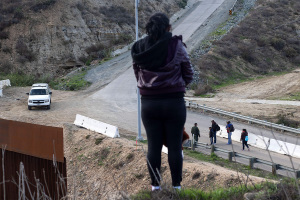Inter-religious Dialogue as a Road to Peace
International leaders consider alternative to religious fanaticism
Geneva -- The Iranian president urged dozens of religious ecumenical leaders to look toward inter-religious dialogue, rather than religious fundamentalism to bring about peace and stability in the Middle East.
The audience at the “Religious dialogue and international relations” conference in Geneva came from a wide array of ecumenical organizations, including the World Council of Churches.
Faced with international tensions that can appear to have a religious dimension, "the dialogue of civilizations, but also the dialogue between religions, particularly between Islam and Christianity, seems to be an absolute and vital necessity," President Sayyid Mohammad Khatami said.
Noting that the “ugliest face” of terrorism came during the 2001 year of dialogue among Civilians, he urged the religious leaders to abandon fanaticism as a source to lasting peace.
"The future of religion will depend on the abandoning of fanaticism, and on (…) mutual comprehension and openness," he stressed. "No religion can hold claim to absolute Truth (…). Dialogue is the foundation which allows for unity in diversity," he said.
The WCC general secretary, Rev. Dr. Konrad Raider agreed to the need for an “open and truthful encounter.”
"We, in the World Council of Churches, are committed to seeing voices of faith defeat those of bigotry, fear and nihilism,” said Raiser. “Voices of fraternity are called to drown those of hostility, racism and ignorance. We reject the tendency, not uncommon in many Western countries, to perceive Muslims as a threat and to portray Islam and some Islamic nations in negative terms."
The Norwegian prime minister also responded to Khatami’s statement, agreeing that religious fundamentalism must be combated within each nation.
"Extremists are trying to spread the message of hate in the name of God (…). Religious leaders can – and must – combat, in words and deeds, the poison spread by extremists in the name of religion. said Prime Minister Kjell Magne Bondevik.
Bondevik, an ordained minister of the Luthern Church of Norway, also expressed however, a great need for religion in bringing about international peace.
Those who have a strong belief can better understand others with strong belief (…). In many conflicts, religion is considered to be part of the problem. I uphold the idea that religion should be seen as part of the solution.”




























